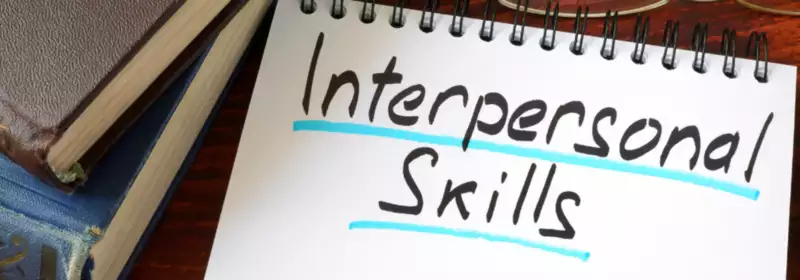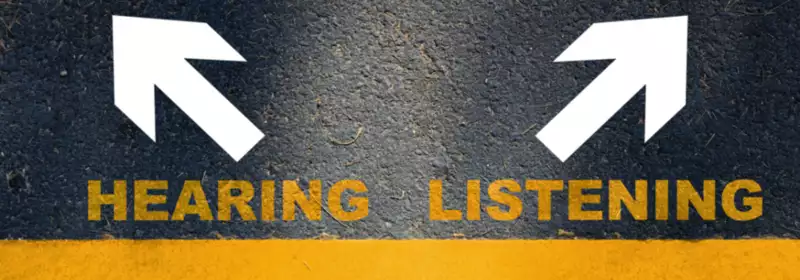Good communications form the basis of every intervention in mental health nursing. A mental health nurse with good communication skills can be the difference in a patient taking a positive step in their recovery and not.
If you’re considering mental health nursing as a career, it’s important to understand the different forms of communication you’ll need to rely on to carry out your role effectively.
Depending on the type and severity of your patient’s issues, they may have varying degrees of communication ability. They may also express their feelings and emotions in different ways and will respond differently to certain methods of communication.
As their nurse, you need to tap into the methods they prefer. You also have to be able to read their mood and emotions to identify cues when they are uncomfortable or on the verge of an episode. By doing so, you’ll help them avoid distressing situations and instead keep them on a positive road to improved mental health.
As such, excellent interpersonal skills are essential for facilitating patient progress and developing a positive nurse–patient relationship. Find out more about the verbal and non-verbal skills that will best help you as a mental health nurse below.

Listening
Probably the most important communication skill mental health nurses can utilise is listening. Many newcomers to the profession worry about saying the right things and asking the right questions. When more can often be gained from taking the time to listen to your patients.
By speaking less and listening more, you are giving your patient space to talk. This allows them the chance to tell their story and feel like they’ve been heard. This can have a therapeutic effect, provide an outlet for built up emotions and help them feel less isolated.
However, effective listening is more than hearing the words they speak. It’s picking up on their experiences, behaviours or patterns of behaviour, thoughts and patterns of thinking, feelings, emotions and moods. As such, active listening is giving them your full attention – physically, mentally and emotionally. Which can take time and practice to learn.
Active listening is a worthwhile skill to develop. This is training your brain to just listen – rather than queuing up the next thing you want to say based on what the other person is telling you.
Active listening takes your ego and desire to speak out of the equation and allows the other person to say fully what they want to say. From there you can give a fuller more relevant and more valuable response because you will have taken the time to fully listen and understand what has been said.

Paraphrasing
Through paraphrasing, you express your patients’ main message in your own words. Keeping the meaning the same but wording it in your own way. This is very important as it shows your patient that you’ve listened to what they have said. It also enables you to check clarity and understanding which helps your patients feel valued and supported.
Summarising
In a lot of your patient conversations, especially when getting to know new patients, you’ll be given lots of information. Summarising what has been discussed is extremely useful as it helps patients feel reassured that you’ve heard them correctly. Allowing them to iron out any misunderstandings and elaborate further where more detail is needed. Aside from helping them feel understood, correct information is essential for providing patients with the right treatment.
Questioning
Mental health nurses need to be able to effectively extract important information from patients. Especially when dealing with those who are guarded and reluctant to discuss their situation or feelings. In this instance, certain questioning techniques can help them to explore these as they require a full descriptive response. However, there are also questioning techniques that can be unhelpful in these situations. As they do not encourage dialogue and limit the opportunity for effective engagement. As such mental health nurses should be aware of which to use and which to avoid.
The most useful questions to engage and explore your patient’s situation are open ended ones beginning with ‘when’, ‘what’, ‘how’, ‘who’ or ‘where’.
Useful questions:
- Affective Questions: focus on your patient’s feelings, mood or affect
- Behavioural Questions: focus on your patient’s behaviour or actions
- Cognitive Questions: focus on your patient’s thoughts or beliefs
- Time-orientated questions: focus on any issues relating to time, such as past, present and future
Unhelpful questions:
- Closed Questions: often only have the option of a ‘yes’ or ‘no’ answer and limit your patient’s options
- Either/Or Questions: leading and restrictive as options provided are what someone else has written and they involve two questions which can be confusing
- Leading Questions: questions imposing your own perspective or those that are suggestive
- Multiple Questions: those asking two or more questions at once which can be confusing and obstructive for patient’s
- ‘Why’ Questions: those inviting an answer over the chance to describe and explore their situation or feelings. These can often sound interrogative which evokes defensive answers
Another key to asking effective questions is timing. So, it’s important to read the situation and ask what is appropriate at the time.
Non-verbal communication
A large portion of human communication is non-verbal, as we also use our face and bodies to express ourselves. So, mental health nurses must be able to read the non-verbal cues of their patients. As well as be aware of their own non-verbal messages.
This can be challenging, especially when dealing with patients from different cultural backgrounds. This is because they can have different values and responses to certain non-verbal communications like eye contact. As their nurse, you need to be mindful of this to continue building a constructive supportive relationship with them.
Non-verbal communications you can use and be aware of:
- Eye contact and avoidance
- Facial expressions
- Vocal tone, volume, and pauses
- Body movement
- Posture
- Gestures
- Fidgeting
- Physiological responses like sweating, heavy or fast breathing
Another useful form of non-verbal communication that can be used to reassure patients and break down barriers is ‘expressive’ touch. So long as it is used with care and respect. Being able to be silent and still with patient’s is also another method some find reassuring.

Get started with an online course
It can take time to become comfortable and effective with positive communication techniques required for mental health nursing. But you will gain more confidence in this area as you learn more about mental health needs.
Knowing what different issues and disorders individuals can face involve can help you understand what they would respond to best. Giving you important insight ahead of applying for a role as a mental health nurse.
There are many online courses you can take that aim to educate people about mental health. These allow you to develop your knowledge and skillset ahead of applying for a degree. They will also help you get a greater understanding of what to expect when working in the mental health field.
When you’re ready to become a mental health nurse, you can get the qualifications you need for university online too. Our Access to Higher Education Diploma (Nursing) gives you the level 3 qualification you need to apply. Removing the need for multiple A Levels and saving you valuable time.
With this qualification, you can go onto study a mental health nursing degree at university. This needs to be approved by the Nursing and Midwifery Council. After which you can become a registered mental health nurse.
learndirect is the leading UK distance learning provider. With many online courses to help you kick start your ideal career.
Find out more about how you can prepare for a mental health nursing degree with our Access to HE Diploma below.




















